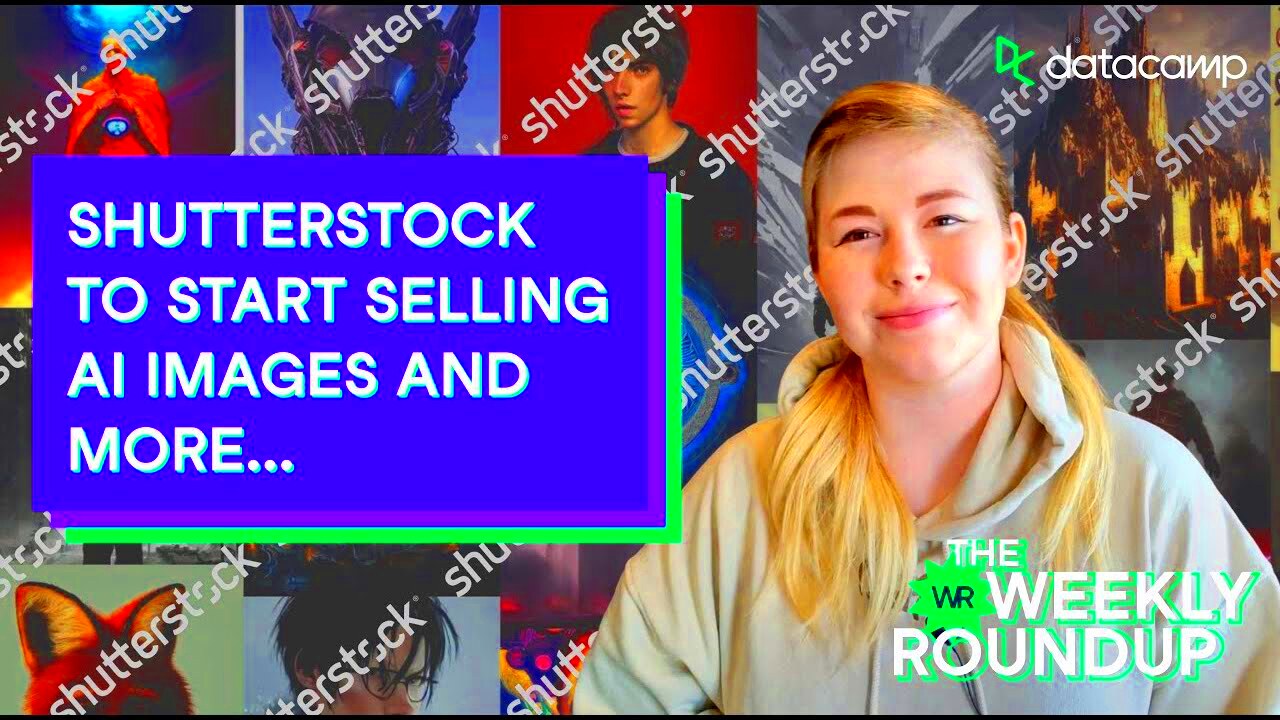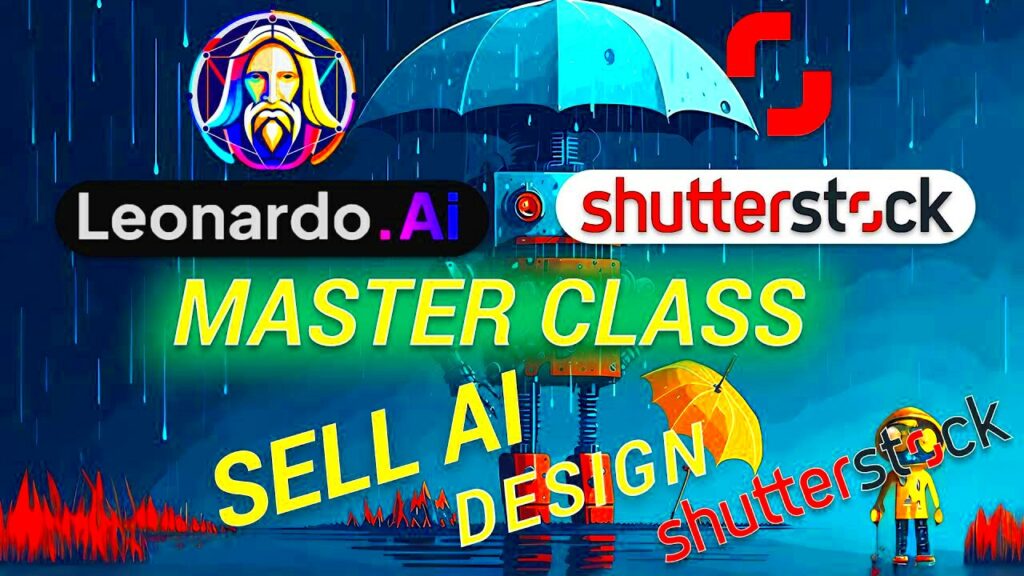Shutterstock may be a good choice if you are enthusiastic about monetary gain from your creativity through selling images made using artificial intelligence. AI-generated pictures in this age of technology are becoming increasingly popular as people search for one-of-a-kind, high-quality pictures. Through this post, you will learn everything necessary including how to define ai images, how to create a profile and how to produce interesting items.
Understanding the Basics of AI Images

AI images are visually appealing pieces made using computerized systems that mimic human thought processes. Depending on what software has been employed in their creation, these can vary widely from completely abstract pictures to those that are so photo-realistic they could easily pass for photographs. Below are some notable dimensions one should take note of:
- Definition: AI images are created through software that mimics human creativity.
- Tools: Popular tools include DALL-E, Midjourney, and Stable Diffusion.
- Quality Matters: High-quality images are crucial for selling on platforms like Shutterstock.
Differentiating yourself in a busy market can be established by grasping the process of generating and improving these images. Concentrate on knowing composition, color theory, and tendencies to enhance your pieces.
Also Read This: Creating a Portfolio Website Directly on Behance
Setting Up Your Shutterstock Account

Setting up a Shutterstock account is pretty important if you want to sell your photos. Here’s a simple guide to follow:
- Visit the Shutterstock website: Go to Shutterstock.
- Click on the "Sign Up" button: You can find this in the upper right corner.
- Choose your account type: Select "Contributor" to sell your images.
- Fill out your information: Provide your email, create a password, and enter your personal details.
- Verify your email: Check your inbox for a verification email and follow the instructions.
- Complete your profile: Add a profile picture and write a brief bio to showcase your skills.
Once you are done with creating an account, check out Shutterstock’s guidelines for contributors. This is necessary since it will help you meet their requirements hence enhancing your chances of success.
Also Read This: Ultimate Guide to Downloading Videos from Dailymotion Online
Creating High-Quality AI Images

One of the most vital requirements for attracting attention is stunning AI images on Shutterstock. Your image quality has a direct impact on your sales. Here are some tips on how to get high-quality visuals:
- Choose the Right Tool: Select a reliable AI tool that suits your style. Popular options include DALL-E, Midjourney, and Artbreeder.
- Understand Your Audience: Research what types of images are trending on Shutterstock. Look for gaps in the market that you can fill.
- Focus on Composition: Use principles of design, such as balance, contrast, and focal points, to make your images visually appealing.
- Edit and Enhance: Don’t skip post-processing. Use editing software to refine your images and correct any flaws.
- Test Your Images: Share drafts with friends or on social media to get feedback before uploading.
Just keep in mind that, not only they lure buying customers, but also the odds of your artwork getting noticed are raised; this is more likely when having high-quality photos resulting in even more exposure and hence sales.
Also Read This: How to Change Thumbnail on Behance Updating the Preview Image for Your Projects
Navigating the Submission Process
This is a product that enables one to put on their creativity; they can generate their own AI generated images. So, the next step is submission on Shutterstock. If you want to go through the submission process simply; here are steps for you:
- Log in to Your Contributor Account: Start by signing in to your Shutterstock account.
- Upload Your Images: Click on the "Upload" button and select the images you want to submit.
- Add Titles and Descriptions: Be clear and concise. Use relevant keywords to make your images more discoverable.
- Assign Keywords: Choose keywords that accurately describe your images. This helps buyers find your work easily.
- Submit for Review: Once everything is filled out, submit your images. Shutterstock will review them for quality and relevance.
Thorough examination may require time and be patient. In case your photos are denied, do take heed of comments for alterations needed on subsequent submissions.
Also Read This: How to Add YouTube Kids to Fire Tablet
Marketing Your AI Images Effectively
At that point, when your photos can be seen by anyone on Shutterstock, you should start promoting them. One way to ensure that your business is thriving is through proper advertisements. Here are a few tips:
- Social Media Promotion: Share your images on platforms like Instagram, Facebook, and Pinterest. Use relevant hashtags to increase visibility.
- Join Online Communities: Participate in forums or groups related to photography and digital art. Engage with others and share your work.
- Create a Portfolio Website: Showcase your best images in a personal portfolio. This can attract more buyers and clients.
- Collaborate with Influencers: Partner with social media influencers who align with your style. They can help promote your work to a wider audience.
- Offer Promotions: Consider running special promotions or discounts to attract initial buyers.
In promoting your AI images you will enhance their visibility in such a way that will allow potential buyers to see and buy them with much ease.
Also Read This: Navigating Contributors: Can I Search Shutterstock by Contributor?
Common Challenges and How to Overcome Them
It is satisfying to sell AI images on Shutterstock, however it comes with its own challenges. These challenges can be understood in order to let you know how to deal with them for a more serene ride. Below are usual challenges faced and the tips on overcoming them:
- Quality Control: Sometimes, the AI-generated images may not meet quality standards. Always review and edit your images before submission. Tools like Photoshop can help enhance your work.
- Competition: The market is crowded with contributors. Focus on finding a niche where you can stand out. This could be a unique style, subject matter, or theme.
- Rejection of Submissions: Not every image will be accepted. If your images are rejected, review the feedback carefully, learn from it, and adjust your future submissions accordingly.
- Keeping Up with Trends: Trends in digital art can change rapidly. Follow design blogs, social media, and Shutterstock’s own trending sections to stay updated.
- Marketing Yourself: Simply uploading images isn’t enough. Create a marketing strategy to promote your work across various platforms to attract more buyers.
If you anticipate these challenges and devise some measures, they will help you navigate through the murky waters of the AI image market successfully.
Also Read This: Creating a Rumble Account and Sharing Your Content
FAQs about Selling AI Images on Shutterstock
Have you got inquiries regarding vending AI paintings on Shutterstock? Below are common queries that may help eliminate any ambiguity:
| Question | Answer |
|---|---|
| Can I sell AI-generated images? | Yes, as long as they meet Shutterstock's content guidelines and quality standards. |
| Do I need to have copyright for AI images? | You should ensure that the AI tool you use allows commercial use of the images generated. |
| How much can I earn from selling AI images? | Earnings vary depending on sales volume and pricing, but contributors typically earn between 15% and 40% of each sale. |
| How often should I upload new images? | Consistency is key. Aim to upload regularly to keep your portfolio fresh and appealing. |
When you are trying to sell your AI images, these FAQs can be used for clarification in the course of your engagement.
Conclusion and Next Steps
To wrap it all up, Shutterstock is a platform where creative people can sell their AI images and make some coin. If one understands the ground rules, produces quality pictures and advertises them properly he or she can find their way into this emerging business successfully. Thus, these are the steps you should take next:
- Start Creating: Dive into your preferred AI image generator and begin experimenting with designs.
- Set Up Your Account: If you haven't already, create your Shutterstock contributor account.
- Stay Informed: Keep learning about industry trends and best practices in AI image creation.
- Network: Connect with other creators and engage in communities to share insights and strategies.
Welcome this adventure and take pleasure in converting your imagination into something real and profitable. The universe of AI pictures is anticipating you and your unparalleled input!
